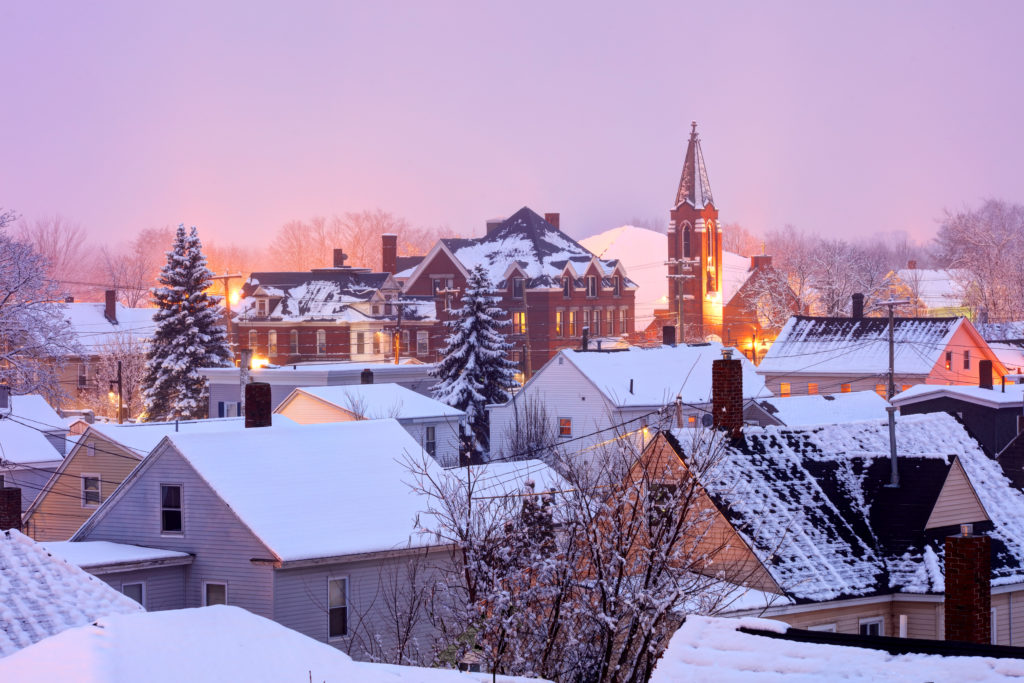Every year, homeowners and small businesses must keep their structures safe throughout rough winter weather to avoid problems ranging from heating issues to snow build-up. These winter building maintenance steps can prevent issues with heating, plumbing, and facilities!
Heating Safety
Fireplace and Wood Stove Safety
- Have your chimney inspected and cleaned each year before the first use.
- Make sure your wood stove is professionally installed and maintained annually.
- Make sure the area around the hearth is clean of debris, decorations, and materials that may catch fire.
- Burn only seasoned hardwood to help prevent creosote buildup that increases with burning unseasoned wood.
- Cover the chimney with a mesh screen to lessen sparks.
Space Heater Safety
- Maintain a three-foot radius of open space around heaters.
- Only use heaters that have:
- Automatic shut-off features: If the heater falls over, for example, it should automatically turn off.
- Been tested by a testing laboratory such as Underwriters Laboratories (UL).
- Turn off the heater whenever you leave the room.
- Never use a space heater to dry clothing.
- Never leave the heater on when you’re asleep.
Plumbing
The following tips will help keep your water flowing freely and avoid the danger and hassle of bursting pipes:
- Before the first snowstorm, be sure you know how to shut off your water.
- If your pipes do freeze, shutting the water off immediately can help prevent them from bursting.
- Call a plumber immediately.
- Check your pipes for cracks and leaks, and make repairing them a priority.
- Don’t lower your thermostat below 65 degrees.
- In unfinished rooms, install insulation or wrap pipes with heating tape.
Outside Maintenance
The outside of your home or business face harsh conditions this time of year, so don’t forget to protect them with the following tips:
Ice Dam Prevention
- Do not attempt to break ice dams with a hammer, chisel, or shovel as it is dangerous and can damage your roof. If you suspect an ice dam, contact a professional immediately.
Roof Stability
- Hire a contractor to check the stability of the roof for snow accumulation, and ask a professional how you can safely keep your roof clear of heavy snow.
Insulation
- Proper insulation can help prevent snow and ice build-up, the loss of heat and energy, and even collapsing roofs. Consider adding additional insulation to attics, basements, and garages.
Insurance
- Keep an itemized list of your property, including photos and/or videos, to help insurance adjusters finalize claims promptly.

